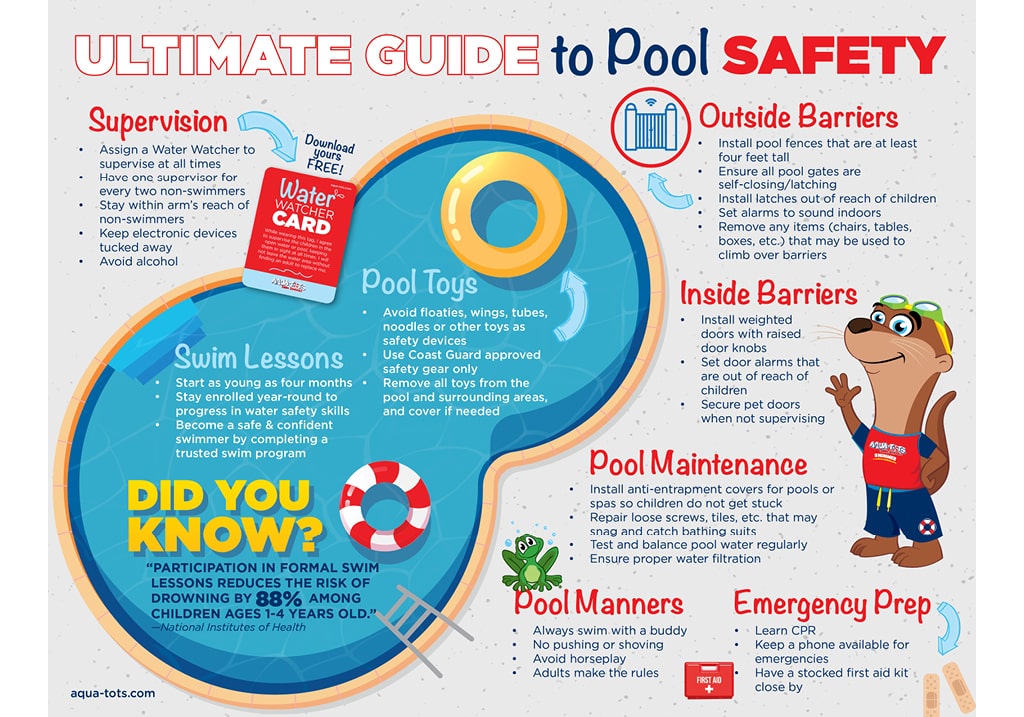
Essential Guide to Ch. 12.22 Swimming Pool Regulations for Safety and Compliance
Greetings, readers! In this extensive guide, we delve into the intricacies of Chapter 12.22 Swimming Pool Regulations, a crucial aspect of ensuring safety and legal compliance for swimming pools.
Swimming Pool Safety: A Multifaceted Concern
Swimming pools offer recreation and relaxation, but they also present potential safety hazards if not managed properly. Chapter 12.22 Swimming Pool Regulations address this concern comprehensively, outlining specific requirements for pool design, construction, maintenance, and operation.
Pool Design and Construction: Ensuring Structural Integrity
The regulations stipulate meticulous standards for pool design and construction. These include specifications for pool depth, shape, and materials, all aimed at minimizing the risk of entrapment and other accidents.
Pool Maintenance: Regular Inspections and Water Quality Checks
Maintaining pool water quality is essential for preventing the spread of bacteria and disease. Chapter 12.22 mandates regular inspections of pool water chemistry, filtration systems, and cleaning equipment.
Pool Operation: Safeguarding Patrons and Staff
Proper pool operation encompasses a range of measures to ensure the safety of bathers and pool staff. These include lifeguard staffing, emergency response plans, and signage to alert patrons of potential hazards.
Legal Compliance: Avoiding Liability and Penalties
Adhering to Chapter 12.22 Swimming Pool Regulations not only promotes safety but also safeguards pool owners and operators from legal liability. Failure to comply can result in fines, penalties, or even criminal charges in the event of an accident.
Safety Audits: Proactive Inspections for Risk Mitigation
Regular safety audits by qualified professionals can identify potential hazards and non-compliance issues before they escalate into accidents. These audits provide peace of mind and help avoid costly legal consequences.
Insurance Coverage: Essential Protection for Pool Owners
Swimming pool insurance is a crucial safeguard against financial losses arising from accidents or liability claims. Choosing the right insurance policy can provide peace of mind and minimize financial risks associated with pool ownership.
Recent Updates and Trends in Swimming Pool Regulations
Chapter 12.22 Swimming Pool Regulations are subject to periodic revisions and updates to reflect evolving safety concerns and technological advancements in pool design and operation.
Enhanced Lifeguard Training and Certification
Recent updates emphasize the importance of enhanced lifeguard training and certification. Lifeguards play a vital role in preventing and responding to pool emergencies, and ongoing training ensures their skills remain up-to-date.
New Guidelines for Pool Covers and Safety Barriers
To prevent accidental drownings, new guidelines focus on the proper installation and use of pool covers and safety barriers. These devices serve as physical barriers to prevent unauthorized access to the pool area.
Taking Action: Ensuring Safety and Compliance
Understanding and adhering to Essential Guide To Ch. 12.22 Swimming Pool Regulations For Safety And Compliance is not merely a legal obligation but also a moral imperative. By taking proactive steps to ensure pool safety and compliance, we create a safer and more enjoyable environment for all.
Pool Owner Responsibilities: Diligent Maintenance and Supervision
Pool owners have a duty to maintain their pools in accordance with regulations and exercise proper supervision while the pool is in use. This includes regular safety inspections, proper storage of chemicals, and enforcing pool safety rules.
Lifeguard Training and Certification: A Vital Role in Safety
Lifeguards are the first line of defense in preventing pool accidents. They must be adequately trained and certified to perform rescues, administer first aid, and maintain a safe swimming environment.
Community Involvement: Promoting a Culture of Pool Safety
Community involvement is crucial in fostering a culture of pool safety. Educating the public, especially children, about water safety and the importance of following pool regulations can help prevent accidents.
Closing Statement
Swimming pools offer countless hours of enjoyment, but they must be managed responsibly to ensure safety and compliance. By adhering to Essential Guide To Ch. 12.22 Swimming Pool Regulations For Safety And Compliance, we create a safer environment for swimmers, safeguard pool owners and operators from liability, and contribute to a community where water activities can be enjoyed with peace of mind.